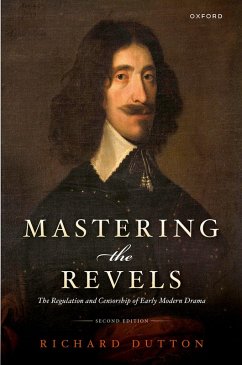
The Arab Shakespeare Trilogy (eBook, ePUB)
The Al-Hamlet Summit; Richard III, an Arab Tragedy; The Speaker's Progress
Redaktion: Holderness, Graham
Versandkostenfrei!
Sofort per Download lieferbar
21,95 €
inkl. MwSt.
Weitere Ausgaben:

PAYBACK Punkte
11 °P sammeln!
Sulayman Al Bassam is one of the world's leading contemporary dramatists. His adaptations of Shakespeare, performed around the world, have won many awards and met with widespread acclaim on four continents. This volume brings together for the first time three of Al Bassam's adaptations of Shakespearean plays - including versions of Hamlet, Richard III and Twelfth Night - collectively known as The Arab Shakespeare Trilogy. The Al-Hamlet Summit sees the familiar characters of Hamlet reborn as delegates placed in a conference room in an unnamed modern Arab state on the brink of war; Richard III: ...
Sulayman Al Bassam is one of the world's leading contemporary dramatists. His adaptations of Shakespeare, performed around the world, have won many awards and met with widespread acclaim on four continents. This volume brings together for the first time three of Al Bassam's adaptations of Shakespearean plays - including versions of Hamlet, Richard III and Twelfth Night - collectively known as The Arab Shakespeare Trilogy. The Al-Hamlet Summit sees the familiar characters of Hamlet reborn as delegates placed in a conference room in an unnamed modern Arab state on the brink of war; Richard III: an Arab Tragedy is a contemporary adaptation of Shakespeare's classic, reworked and transplanted into the scorching oil-rich Islamic world of the Gulf; while The Speaker's Progress is a forensic reconstruction of Twelfth Night which transforms into an unequivocal act of defiance towards the state, forming a dark satire on the decades of hopelessness and political inertia that fed twenty-first-century revolts across the Arab region. The Arab Shakespeare Trilogy features an editorial introduction by Graham Holderness, positioning the plays within the contexts of both modern Shakespearean drama and Arab culture as well as an author's preface by Sulayman Al Bassam, detailing the plays' history of theatrical reception and outlining his philosophy of Shakespeare adaptation.













